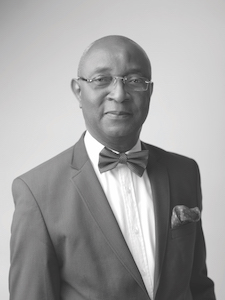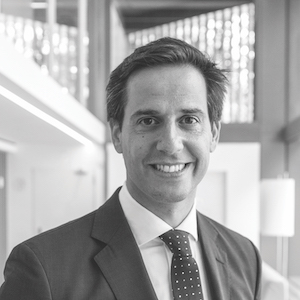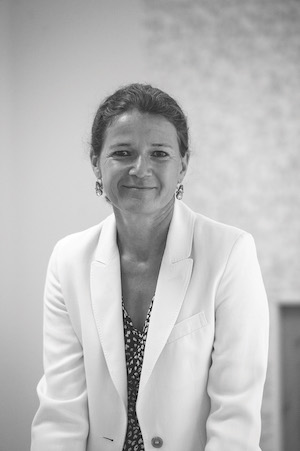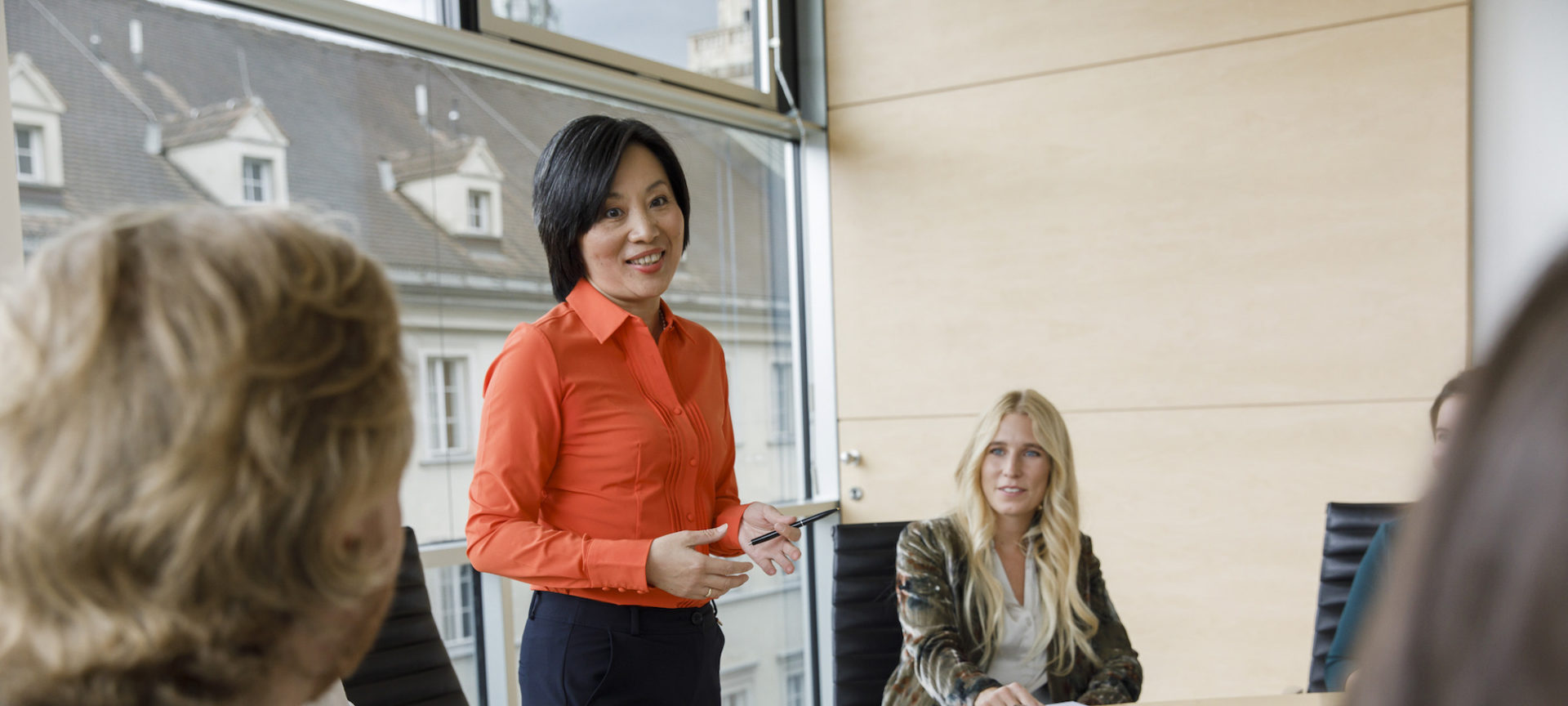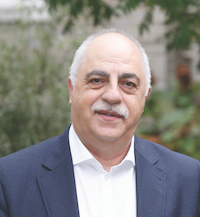In January 2021, Chris Ogbechie took up the role of Dean of Lagos Business School. A year on, David Woods-Hale talks to him about the challenges of leading through a pandemic and preparing students to tackle Africa’s business and societal challenges
Could you share some insights into your leadership journey and the challenges you’ve overcome?
I was appointed Dean of Lagos Business School (LBS), in Nigeria, in the middle of the Covid-19 pandemic, at the point when we were coming out of the first lockdown and dealing with the impacts of the virus.
A year before Covid struck, leaders at the School had gathered to discuss the future of work, and remote learning was something we were already researching and working towards implementing. This meant that, when the pandemic hit, we immediately shifted to remote learning, even before the Nigerian government announced a lockdown.
Our executive programmes were negatively impacted by the pandemic. There was a significant drop in enrolment and revenue as many organisations cut their learning and development budgets. Some of our executive programmes had a 60% decline in enrolments, while even the best-performing ones saw a 40% drop.
Our MBA programmes, on the other hand, were not disrupted for a single day. Due to our proactiveness in offering online learning, we had the knowledge and experience to switch to it and were able to do so easily. However, a few students dropped out as they couldn’t afford to pay their fees.
Some faculty members were already teaching virtually, so our focus was on training their colleagues to do the same. Luckily, we already had a Learning Management System in place and the Modular EMBA was being run as a hybrid programme with 60% of teaching in person and 40% online – so moving to 100% online was simple. Members of the marketing team also needed training to explore other marketing and sales channels, which included utilising more digital marketing, as they were used to face-to-face selling.
Our revenue dropped dramatically in 2020, forcing us to cut our budget and expenses. We were able to minimise losses by reducing and prioritising expenses. In order to carry everybody along, we had to embark on extensive internal communication to let staff know the challenges we were facing and the plans we had in place to keep the School going. We had to accelerate the use of technology, and we embarked on co-production of knowledge through collaboration with other institutions, consulting firms, Business Schools and corporate academies.
How have you adapted your strategy to continue to thrive during the disruption caused by Covid-19?
With the uncertainty and disruption in the business environment caused by the pandemic, we ran a series of free webinars to support the business community and help it through the unprecedented times. These webinars covered subjects including operations, supply chain management, strategy, marketing, and human resource management. We benefited from this as it re-established LBS as a thought leader and provided us with insights into the needs of business.
We discovered our customers’ pain points and used what we learned to create a hybrid learning option, redesigning existing programmes, and introducing new ones. We realised that the entrepreneurial mindset and critical thinking that drive innovation are vital to success in the ‘new normal’. We stressed this in our programmes, and introduced the concept of building ecosystems through collaboration. We also reinforced the message of social responsibility among all our students.
At the end of 2021, our performance was slightly above our pre-Covid performance of 2019, and twice the level of our 2020 performance. In addition to our international awards and accreditations, in 2021, we became the first tertiary institution in Nigeria to receive the ISO 9001:2015 certification, which further validates the effectiveness of our Quality Management System, aimed at ensuring a pleasant participant experience.
Our Sustainability Centre came top out of 36 international Business Schools in the 2021 Global Business School Network’s (GBSN) ‘Going Beyond’ Award. This was in recognition of the Centre’s initiatives in strengthening society, demonstrating community impact and embodying the spirit of inclusive and sustainable development. Two MBA teams also took first and second place in the GBSN Africa Business Concept challenge, which involved 56 teams from 15 countries.
Is the business education sector responding quickly enough to ongoing disruption and what advice would you offer to other deans?
Yes, the response has been quick. My advice is to evolve with the technology, and pay more attention to customers: understand their pain points and design tailored programmes for today’s business leaders, providing a better experience. Your eco-system should influence your research direction; research should help address the business, social and institutional problems of the society. Experiential learning should be prioritised, and there should be better collaboration between Business Schools. For Business Schools in emerging markets, it is important to democratise education through technology, to make it accessible.
In Nigeria, new industries are emerging and the business managers in these sectors require more customised management programmes. At Lagos Business School, we offer bespoke management programmes to meet the unique demands of players in various sectors. For example, we have the Agri-business Management Programme, tailored to the unique needs of this sector, and we are developing a programme for techpreneurs in financial services, healthcare, and entertainment. We are also looking at how best to prepare students for a world where artificial intelligence and robotics will alter our daily lives. We need to keep up with technology, deliver relevant content and improve the quality of the programmes we offer.
It is imperative to finetune programmes periodically and to seek partnerships, as we do at LBS. We have partnerships with more than 15 international Business Schools and other institutions in the areas of research, programme design and delivery, and student exchange, in order to develop African business leaders with a global perspective and experience.
Can you offer some examples of innovations your School is developing to future-proof its postgraduate business programmes?
LBS offers only postgraduate programmes. As one of Africa’s top Business Schools, we value innovation and make it a priority in our content delivery. We established the LBS Sustainability Centre to drive the sustainability agenda and develop responsible leaders more than a decade ago, before other African Business Schools.
We have been promoting responsible management as a means of driving sustainable economic development across Africa. Business ethics and sustainability are mandatory courses on all our programmes. We have become champions of financial inclusion in Nigeria through the work being done by our Sustainable and Inclusive Digital Financial Services Initiative.
We took a strategic decision to review our curriculum and to use the most current pedagogical techniques in teaching and learning. To cater for distinct target markets, we divided our programmes into different categories: blended (asynchronous and online), fully online, hybrid, and in-person programmes (which are our high-value programmes).
Our international exchange programmes, and immersion trips with leading Business Schools in Europe, America and Africa, help our students to experience other cultures and business environments.
We recently rolled out a five-year strategic plan with five pillars for LBS. Pillar one is delivering a remarkable participant experience and preparing participants for the future of work. Pillar two is significant research that solves business, social, and institutional problems, and pillar three is about enhancing engagement and nurturing partnerships with stakeholders. Pillar four is targeted at people, processes, systems, culture and values, and involves strengthening our internal process. Pillar five aims to increase our internalisation, maintaining all accreditations, research, programme design, faculty and student exchange with other international Business Schools.
What do you think are the most pressing challenges facing international Business Schools?
Technology is transforming our way of life, as well as how we learn and access information. There has been a rapid change in the way people learn due to technology and the impact of Covid-19. Hence faculty at Business Schools need to adopt new technology and incorporate new ways of teaching to meet the changing needs, tastes, and preferences of students. Business Schools must embrace and champion innovation to keep up with pace of technological advancement, which is changing consumer behaviour and our way of life. Investing in technology is expensive, so the budget must be increased.
Climate change is a challenge for the entire world – and Business Schools are no exception. The effects of climate change have already started to affect businesses and industries. Business Schools, as knowledge hubs and breeding grounds for business solutions, must rise to the occasion and proffer solutions for stakeholders.
There is increased competition in the learning space as customer preferences change and technology disrupts the industry. Business Schools must strive to remain relevant to students, business managers, executives, corporate organisations, and governments.
For us in Africa, massive youth unemployment is a challenge. We need to develop entrepreneurs who will go on to birth new organisations and industries that will create jobs for young people.
You have a very strong sustainability mission at LBS. Business students are passionate about people, profit, purpose, and planet. How is LBS addressing these needs and focusing on developing responsibility and sustainability-centric leaders?
Business ethics and sustainability have been part of the curriculum on all our programmes from their inception. We believe that business leaders will only build organisations that succeed in the long run when they go beyond the financial bottom line, focusing also on their social and environmental impact and performances.
In our MBA programme, first-year students are taught to be changemakers through the mandatory Sustainability and Personal Social Responsibility (PSR) Course. This core pillar of their learning experience aims to build a mindset of professional ethics and service to society through the implementation of PSR Projects to solve specific social problems faced by target communities. These projects focus on sustainable development themes such as ‘zero hunger’, ‘quality education’, ‘health and wellness’, ‘economic empowerment’, ‘environmental conservation’, and so on. The PSR projects create opportunities for future managers and business leaders to work with players in the nonprofit sector as well as participants of the LBS Nonprofit Leadership and Management programmes.
As an institution, we are constantly seeking ways to help organisations and executives enhance their business performance, and improve their social and environmental impact. In 2010, we established the Lagos Business School Sustainability Centre – the first of its kind in Nigeria – to drive capacity building, knowledge-based dialogue, and collaboration between various stakeholders to find solutions to sustainable development challenges in Africa. The Centre brings together theory and practices on sustainability by building organisational capacity, developing tools and resources, collaborating and supporting initiatives by businesses, government, development organisations, civil society and academics. In addition, the Centre also provides customised management training programmes, open enrolment programmes, seminars and workshops, plus social impact assessment and sustainability reporting services.
We also work with organisations to address sustainable development challenges, incorporate sustainable practices into their operations, and to develop innovative products and services that transform their communities. while simultaneously generating economic value. We have initiatives such as the Sustainable and Inclusive Digital Financial Services Project, Building Youth Capacity for Nonprofit Leadership and Management, and the recently launched Innocent Chukwuma Social Impact Youth Chair and Fellowship, supported by organisations including the Bill and Melinda Gates Foundation and the Ford Foundation. We are glad that our students and alumni continue to follow our institution’s example of making a difference in our larger community, national development and in achieving the UN’s Sustainable Development Goals.
Having completed your MBA and PhD at AMBA-accredited Schools in Europe, you lead a Nigerian Business School and work closely with another in Kenya as a visiting professor. You have written extensively on business strategy in the region as well. Can you share some insight into the exciting and fast-growing business education sector in Africa?
Africa’s business education sector is expanding rapidly, with programmes aimed at providing solutions to African business problems. The African Continental Free Trade Agreement is opening up Africa as one single market, which will provide tremendous opportunity for African businesses. It will lead to the free flow of information and money across the continent, and Business Schools need to develop managers who can operate across the continent and assist organisations to work effectively in the new single market.
To equip the investors, entrepreneurs and executives with the requisite skills, competencies and insights to take advantage of the emerging opportunities, we have developed the Doing Business in Africa programme. The course provides practical guidance and knowledge on the cultural nuances of the various African markets and the political and macroeconomic environment, as well as policy, risk, and regulatory conditions. The course gives an overview of the critical aspects of running business in Africa. It improves participants’ awareness of the structure and nature of the continent’s economy, and also provides in-depth knowledge of how African businesses operate, and the business strategies required to effectively collaborate with African partners.
As the African business landscape continues to change, there is an increasing appreciation of business research and the insights that Business Schools provide to inform better decision-making. LBS has always been Africa-focused and this course has come at the right time.
What are the next steps for yourself as a leader and for your School?
A key step is putting the customer first and providing an excellent learning experience. Our theme for 2022 is ‘Delighting the customer’, so we plan to continue to improve the customer experience for all our stakeholders, ensuring they have a pleasant and memorable experience. We want to sustain our relevance to our stakeholders, so we need to attract students and participants from around the world, and provide an enjoyable learning experience.
At LBS, entrepreneurship is important: 20-25% of our MBA students start their own businesses after graduation. To increase this number, we are working with a leading development bank to set up an Entrepreneurship Innovation Centre. This will be a hub where budding entrepreneurs can experiment with ideas, and birth innovative solutions to problems. We intend to leverage one of our partnerships to establish an angel funding platform, connecting entrepreneurs to investors. We are also developing new partnerships. One thing is certain: we will continue to develop responsible leaders who will go on to solve Africa’s most prevalent problems.
On a personal note, I plan to continue writing research papers in the fields of strategy and business management. Although my main responsibility is in administration, I must ensure I continue on the path of developing a body of knowledge on doing business in Africa.
What differentiates the MBA programme at LBS?
Our values, professionalism, emphasis on business ethics, sustainability and value creation – all of which are integral components of our MBA programme – help us to stand us out in this market. We also adopted the UN PRME (Principles of Responsible Management Education) initiative into our MBA programme to ensure our students gain competencies required to balance economic and sustainability objectives.
We have a world-class MBA programme with international accreditations and a robust network of Business Schools, corporations and associations. Our Alumni Association is made up of prominent professionals in the socio-political and economic landscape in Nigeria, Africa and the rest of the world.
We have an award-winning faculty who are also industry practitioners with business experience in Africa. They offer academic and practical insights, ensuring that our students have a well-rounded understanding of the African and international business environments.
Our MBA programme is global in its approach, but local in relevance, and tailored to the needs of African businesses, with a deep understanding of the unique challenges they face. We develop our students into world-class business professionals with the requisite capabilities to solve African problems. We have adapted some of the best methods from around the world to the African setting so that our students receive a global education tailored to their immediate environment.
And finally, do you feel optimistic about the future of business, Business Schools, and the economy?
I am very optimistic about the future of Business Schools, businesses and the economy. As the economy rebounds from the pandemic new opportunities will emerge.
The pandemic has already changed the work culture; working from home has become the norm, and technology will usher in new developments. New growth areas and new challenges will arise, and Business Schools are preparing their students to meet these challenges.
Responsible leaders are needed in the world of economics and business, and these professionals will come from Business Schools, which are the masters of developing skilled management professionals, preparing future leaders, and fostering a better understanding of the fundamental challenges the global economy faces.
These things spell an exciting future for business, Business Schools and the economy.
Chris Ogbechie is Dean of Lagos Business School (LBS) a Professor of Strategic Management, a visiting professor at Strathmore Business School, Nairobi, Kenya, and the founding Director of LBS Sustainability Centre.
This article is adapted from one which originally appeared in Ambition – the magazine of the Association of MBAs.

